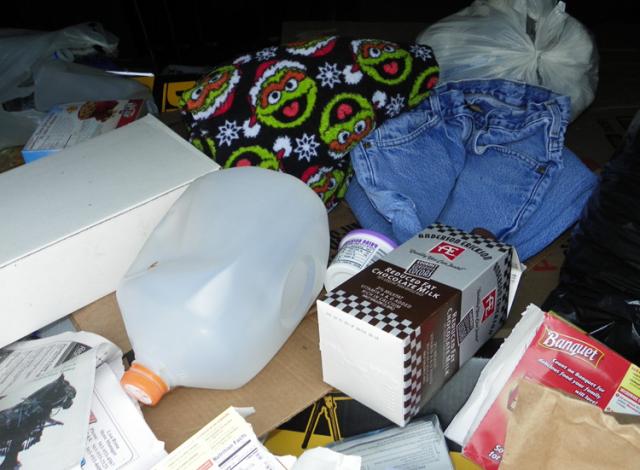Do you remember that Sesame Street song, "One of these things does not belong?"
One of these things is not like the others,
One of these things just doesn't belong,
Can you tell which thing is not like the others
By the time I finish my song?
That song showed children a set of images, but one of those items was not like the rest. The purpose of the song is to help preschoolers learn the difference in what things are and do.
An iconic Sesame Street image appeared in Vinton recently, in a place where it clearly was one of those things that just doesn't belong with the others.
Along with some other clothing, a pair of "Oscar the Grouch" Christmas pajama pants ended up in the recycling bin for rural county residents, which is placed across the street from the Benton County courthouse.
While such items, in good conditions (and these pants were) can be reused, they cannot be recycled.
The only items which belong in the recycle bins are paper, plastic and cardboard.
Unfortunately, says ECICOG Environmental Services Director Jennifer Fencl, the Oscar pajamas are just one example of an increasing trend in misuse of the recycling bins.
"In the past month or so, there has been pretty significant contamination of the drop-off recycling sites, especially in Vinton," says Fencl. "This will cause the processing facility to charge substantially more for those loads and it all ends up in the landfill."
One challenge, says Fencl, is that many things that are recyclable are not accepted in the drop-off containers, such as glass, plastic bags, textiles, batteries, large metal items, etc.
"The drop-off containers are meant for typical household recyclables which are mostly packaging/containers and paper. No matter the intention, contamination is a significant and costly issue." says Fencl.
ECICOG, the East Central Iowa Council of Governments, helps counties and cities (including those in Benton County) to deal with solid waste issues and recycling.
Fencl explains the process that the items in the recycling bins goes through, in hopes that area residents will understand better the impact of placing things that do not belong:
The facility that accepts the recyclables is designed to sort and sell household recyclables. They use conveyor belts, big rotating drums with ‘fingers’, puffs of air, and human hands to get the items separated enough to bale and market. Plastic bags (clothes would do the same) get caught in the equipment and jam them up; glass breaks and grinds the equipment; needles and other ‘sharps’ are a health hazard; metal chains wreak havoc… the do’s and don’ts in recycling programs are established for very good reasons. The whole system is designed around “acceptable” materials…. violating the rules puts expensive equipment at risk, but also (and more importantly) puts the employees at risk.
If there is enough “contamination” then the whole load will be land-filled. If there are only a few items, they may accept the load and pull out the offending items (assuming the processing plant employees see them in time)… which would end up in the landfill too.
Regardless of whether the improper items are placed there with good or bad intentions, the impact of improperly disposed items is increased risk to employees and increased costs, says Fencl, adding that continued misuse may lead to changes.
"If not corrected, the financial sustainability of the program will need to be evaluated," she adds. "I really think that people want to recycle all that they can but they can get confused about the rules, which have evolved over time."

Comments
Submit a CommentPlease refresh the page to leave Comment.
Still seeing this message? Press Ctrl + F5 to do a "Hard Refresh".